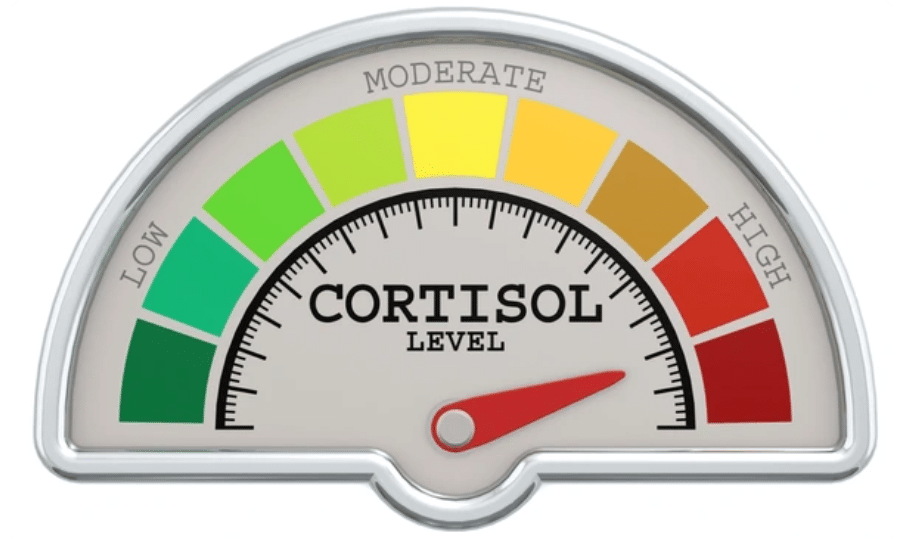We all know what it feels like to be overcome with anxiety, stress and fear—it can be jarring and extremely uncomfortable. Blame cortisol! However, it’s important to understand that cortisol is not inherently bad and that it does play a critical role in our health. Prolonged heightened cortisol? That’s another story. Let’s chat:
Cortisol is a hormone produced by the adrenal glands, located on top of the kidneys. It is often referred to as the “stress hormone” because it plays a crucial role in the body’s response to stress. Cortisol plays several vital roles within the body:
Regulates blood sugar levels: Cortisol increases blood sugar (glucose) by stimulating the breakdown of glycogen in the liver and muscles.
Suppresses inflammation: Cortisol helps reduce inflammation in the body.
Increases blood pressure: Cortisol helps maintain blood pressure by increasing the body’s sensitivity to adrenaline.
Improves mood and cognitive function: Cortisol can enhance mood and cognitive function in moderate amounts.
Helps the body cope with stress: Cortisol is released in response to stress, providing the body with the energy and resources it needs to handle the situation.
Cortisol levels fluctuate throughout the day, peaking in the morning and gradually declining throughout the day. Prolonged elevated cortisol levels can have negative consequences for health. There are many factors that can lead to elevated cortisol in women:
-Stress around personal issues, work, finances, relationships, etc.
-Fasting or maintaining a fasted state (especially intermittent fasting)
-Not eating enough carbs, fats and protein or calories in general
-A lack of sleep disrupts the circadian rhythm, elevating cortisol
-Hard or intense training sessions and prolonged workouts, especially on repeat
-Skipping intra-training fuel on hard or long sessions
-Aerobic training raises cortisol more than resistance training
-Training fasted
-Not taking enough rest or easy days
-High caffeine intake, a diet high in processed food and sugar
Prolonged elevated cortisol, especially in active women, has a host of negative consequences. To list a few: muscle weakness due to muscle breakdown and atrophy, skin weakness, acne, higher blood pressure, excess hair growth, bone loss, loss of menstrual function or regularity (e.g. hypothalamic amenorrhea or amenorrhea alone), infertility, mood swings, sleep problems, fatigue, irritability, reduced immune function, heart conditions and MORE.
The greatest way to control cortisol? Stress management and the opposite of the factors listed about.
STRESS MANAGEMENT TIPS:
I personally love the Box4 breathing technique: Inhale for 4 seconds, hold for 4 seconds, exhale for 4 seconds, hold for 4 seconds. Visualize drawing a box in your mind as you do this: up 4 (inhale), across 4 (hold), down 4 (exhale), across 4 (hold).
Low intensity exercise such as walking, yoga or gentle pilates is also amazing for endorphin production and stress relief. Hard exercise is less beneficial for cortisol control. I love to step out for a walk, put on a calming playlist and zone out. Walking outdoors is also hugely beneficial—something about the wind, sun, birds and sky works like a charm for me.
Limiting caffeine, eating a balanced diet and aiming for 7-9 hours of sleep also lowers stress levels for me! When I’m lacking sleep and pounding caffeine I feel whacky.
I also love making lists before bed for the next day: tasks I need to complete tomorrow so I’m less stressed over “what needs to be done”. Visually seeing it helps me calm my mind.
Lastly, getting perspective and spending time with OTHERS (partner, family, friends, church group, etc) helps immensely with stress relief. Get outside of your head!

